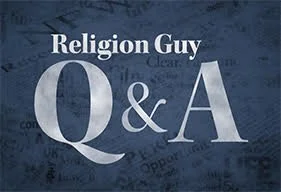THE QUESTION:
Why does Islam ban non-Muslims from the holy cities of Mecca and Medina?
THE RELIGION GUY’S ANSWER:
Daniel Pipes of the Middle East Forum is among the last people Saudi Arabians might want to listen to. Yet he penned a Wall Street Journal op-ed last month urging Crown Prince Mohammed bin Salman to end Islam’s long-standing ban against non-Muslims entering the faith’s two holiest locations, Mecca, where the Prophet Muhammad issued the Quran and founded the religion 14 centuries ago, and Medina, where he led the first Muslim regime.
This prohibition hit the news when Gil Tamary, an American Jew and TV journalist in Israel, illicitly slipped into Mecca to record material and broadcast a much-hyped 10-minute travelogue. Muslims have enforced the ban so carefully, Pipes reports, that only 18 non-Muslims are known to have ever entered Mecca, including Tamary and two others in recent decades.
The violation of sacred space provoked an international furor among not only Muslims but Israelis and westerners who feared a rise in hostility. The regime has filed criminal charges against Tamary and his Saudi driver. Tamary apologized and said his intent was to “showcase the importance of Mecca and the beauty of the religion” and thereby foster religious tolerance. Guess again.
But cheerleader Pipes thinks Tamary “boldly challenged an archaic status quo that the world unthinkingly accepts. Bravo to him for breaking a taboo. … He deserves respect, not condemnation.” Pipes even wants unspecified international organizations to lobby for open access with the Saudis.
Pipes did not mention another exclusionary policy noted in the U.S. State Department’s 2022 religious freedom report. Saudi Arabia strictly forbids all non-Muslim houses of worship nationwide, though private or secret Christian gatherings are known to occur.
Other religions do maintain such restricted enclaves. Among Orthodox Christians in Ethiopia, only a few guardians ever enter the sanctuary in remote Aksum that’s believed to contain the biblical Ark of the Covenant (or perhaps a revered ancient replica of it?).
The Church of Jesus Christ of Latter-day Saints (formerly nicknamed “Mormon”) bars non-believers from its 170 temples worldwide, even for family members at weddings. But tour guides and displays at the visitors’ center next to the main temple in Salt Lake City promote LDS beliefs.
One can imagine that Saudi custodians of the holy sites could similarly regulate locations where visitors are allowed, use the opportunity to educate them about Islam, and then admit only Muslims during the population surge for the annual Hajj pilgrimage.
A primary factor in the Islamic tradition is verse 9:28 in the Quran, which states that “the polytheists” (mushrikun in Arabic) are “unclean” and therefore cannot be allowed near Mecca’s mosque. That’s the word used in Majid Fakhry’s English translation approved by venerable Al-Azhar University. (“Unclean” is understood to mean impure in ritual and doctrine, not hygiene.) The older A. Yusuf Ali English rendition widely distributed by the Saudis uses the similar word “Pagans,” while North American Muslim scholars’ The Study Quran reads “idolaters.”
Muslims debate whether this scriptural ban on non-believers extends to all mosques everywhere – the minority position — or only applies to Mecca’s vast Haram Mosque that encompasses the faith’s most sacred spot, the Ka’bah, which contains the Black Stone believed to date back to Adam and Abraham.
The Quran’s literal word designating polytheists (or pagans or idolaters) raises whether the Mecca prohibition applies to any and all non-Muslims. The Quran avoids this label when depicting Jews and Christians, who are instead designated hundreds of times as “the People of the Book,” that is, the Bible.
CONTINUE READING: “Why can’t non-Muslims visit Mecca and Medina?”, by Richard Ostling.


